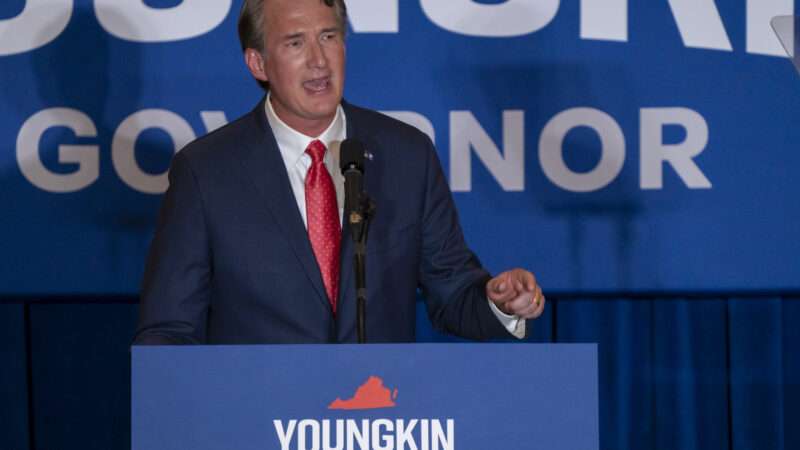
On Friday, Virginia Gov. Glenn Youngkin (R) announced that he would push for legislation restricting most abortions after 15 weeks. Shortly following the Supreme Court's decision repealing Roe v. Wade (1973), Youngkin's office said that it would enlist four Republican lawmakers to draft a bill banning abortions in the state after 15 weeks, with exceptions for rape, incest, and cases where the mother's life is endangered. Youngkin also indicated that he would be willing to compromise on a 20-week ban.
"I'm proud to be a pro-life Governor and plan to take every action I can to protect life," Youngkin said in a Friday press release. "The truth is, Virginians want fewer abortions, not more abortions. We can build a bipartisan consensus on protecting the life of unborn children, especially when they begin to feel pain in the womb, and importantly supporting mothers and families who choose life."
Youngkin's proposal is unlikely to draw opposition from abortion moderates. A 2022 Pew Research poll indicated that 71 percent of Americans believe abortion should be legal in at least some circumstances. Gallup reported similar numbers in 2018 but noted that while "six in 10 U.S. adults think abortion should generally be legal in the first three months of pregnancy….Support drops by about half, to 28%, for abortions conducted in the second three months, and by half again, to 13%, in the final three months."
These abortion moderates do not support hardline Republican prohibitions on all abortions or progressive policies that would allow abortions in the third trimester. They are the kind of voters who support making abortion "safe, legal, and rare," the policy tagline coined by former President Bill Clinton in the 1990s.
Despite the political success of Clinton's position, state legislators have taken increasingly extremist positions on abortion. Following Friday's ruling, 10 states quickly banned abortion with no exceptions for rape and incest, while six other states currently allow abortion with no gestational limit.
While some Republicans vow to punish women who obtain abortions with the death penalty, Democratic politicians have regularly engaged in verbal gymnastics to avoid opposing any limits to abortion at all—including in the latest stages of pregnancy.
In contrast, Youngkin's proposal offers a moderate solution to the issue of abortion. His 15-week ban speaks to a significant segment of public opinion, as well as conforms to the standard in much of Europe.
A 15-week ban would still allow for the vast majority of abortions to take place, as 2019 CDC data found that 92.7 percent of abortions are performed at less than 13 weeks gestation. However, it prohibits the procedure in much of the second and all of the third trimester.
The proposal has already earned criticism from both pro-choice and pro-life legislators. At an abortion rights rally on Friday, state Sen. Jennifer L. McClellan (D–Richmond) said, "We're going to say no. We're going to say to the party that professes to care about parental rights, you will not insert yourself into the decision whether to become a parent in the first place." Conversely, congressman Bob Good (R–Va.) took to Twitter to write that "[i]n Virginia, let's not pretend the Democrats will agree to ANY restrictions on abortion. No point in working alone so modestly for 'pain capable' legislation."
For Virginians who find themselves stuck between two increasingly radical camps, Youngkin's approach could offer a compelling alternative for handling abortion policy in a post-Roe world—one which prioritizes moderates' concerns for both female bodily autonomy and the lives of developing fetuses.
The post Glenn Youngkin's Proposed 15-Week Abortion Ban Speaks to Abortion Moderates appeared first on Reason.com.







